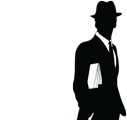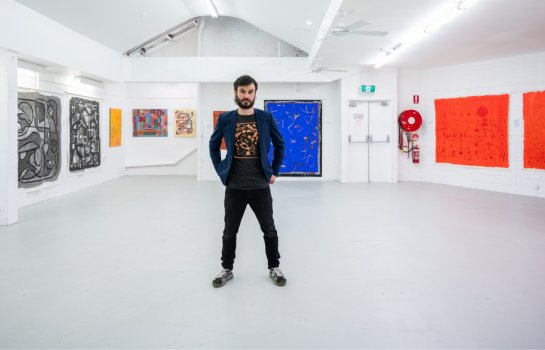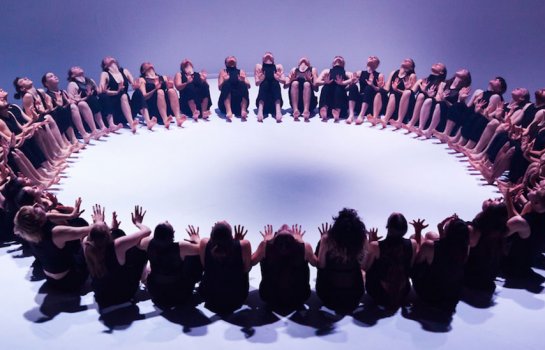Frank Woodley, comedian, Extra Ordinary
I actually think it’s still is surprising for me and exciting if I can make a room of people have a great time ...
If you’ve followed Australian comedy at any point in the past 20 years, there is a strong chance you encountered the work of Lano and Woodley. This comedy duo sat atop the comedy pile for close to their entire career, bringing gut-busting laughs and bucket-loads of chuckles to audiences across Australia. It has been 10 years since the duo’s amicable split, but both performers have gone on to enjoy successful careers as solo comedians. Frank Woodley has been described as the wackier half of the duo, with a penchant for physical humour that harkens back to Frank’s early influences of Don Adams and Jerry Lewis. With a brand new show called Extra Ordinary in tow, Frank Woodley is heading to Queensland for the Brisbane Comedy Festival, where audiences new and old will be able to see the comedian at his silliest and most entertaining. We had a chat with Frank to talk about his early days in the industry, and how comes up with his solo work.
Take me back to the time when you first attempted comedy – can you remember the first time that you discovered that making jokes was really fun?
I do have quite a vivid memory of the first time I made a crowd laugh. It was in grade two at the school sports day, I was in a team running the four-by-four relay and I was the last runner and we were coming last. I’m running down the field with the baton in my hand and I remember thinking that I could try as hard as I could and maintain my self-respect and sense of decorum or I could skip down the track playing the baton like it was a flute. I went for the flute option and I got a big laugh from all the kids and parents and I can remember thinking, ‘Well, that worked!’ After the race no one was talking about who won – everyone thought I was a cheeky little bugger. If you did a survey of comedians I wouldn’t be at all surprised if the majority of them aren’t very fast runners.
Obviously your first moment in the spotlight was a success, then! When did it occur to you that you could do it for a living?
When I was about 15 I went to the local street festival in Creighton dressed up as a clown and I roamed around clowning. It’s quite peculiar really. I honestly can’t explain it and I don’t know anyone else who did this at 15. When I look back at that now I think it’s just bizarre. I don’t know why I had this feeling that making people laugh and clowning around was something that I wanted to do. Instead of doing year 12 at high school, I went and did a drama course at a TAFE, when I did that course I met a guy named Benny – he might have been from Adelaide originally – but we formed a theatre company and we did some shows in old folks homes and schools. He knew about the Adelaide Fringe – I’d never heard of it – and he got us all together to create a kid’s show and a sketch comedy show that we put on at a venue in Adelaide. That was my first big introduction to the world of live entertainment and it completely blew my mind. That was in 1986 – 30 years ago. That was the big start of me realising that there were people out there creating their own entertainment and making a living doing it. It was a whole new world of possibilities for me.
You are known for your brand of physical humour as opposed to general stand-up comedy. How long did it take for you to hone your comedic style and identity?
When people ask me for advice on how to become a comedian, all I can say is find opportunities to perform – as many as you can. Get on stage as much as possible because it has to be a natural evolution of finding out what your natural onstage persona is. The only way you can do that is by having lots of time on stage. In terms of me developing my thing, I don’t really know how it happened –that first sketch comedy show we did was awful but I was only 17 at the time and I’d never been into a stand-up comedy venue but I remember I did two routines in that show and one was set to a piece of classical music and I pretended to conduct it. You can see in those early sketches already I want to be Don Adams or Jerry Lewis – they were the influences I was emulating. I think right from the start it was always that physical, child-man, clown-like character that was the thing I was most drawn to.
For the bulk of your career you played the role of the wacky half of Lano and Woodley – when the two of you went your separate ways to perform solo how did you adapt to not having the straight man to play off and forging a solo identity?
It was quite difficult for six months to a year – because what happened with Lano and Woodley was we were in a trio a the beginning. In the trio it naturally formed around our personalities and proclivities performance wise – the other guy Scott was the serious adult character in the group and Colin was the arrogant teenager and I was the child. When Scott left, Col assumed his character as well and became the arrogant adult boss, but I could still fulfil the same niche. Then after Col left, it was kind of difficult to me. Because I had spent the last 20 years in the role of sabotaging what the authority figure on stage was trying to achieve. When you are the one trying to sabotage with nothing solid to kick against it was almost too anarchic – there wasn’t any backbone to it for a while. It took me a while to realise that I had to be a two-headed beast. I’m there a little bit more as an adult who is trying to present an idea or do a performance but I’d be constantly fighting against it and unravelling because I am distracted or inept, but I have to be the adult as well as the child. It’s taken a bit of work to find out how to move naturally between those two functions.
What’s the biggest thing you’ve discovered about yourself and your comedy since going solo?
That’s a good question – it’s still not a radical departure as my natural tendency is to be an innocent on stage. I’ve always enjoyed being on stage in a state of bewilderment, I’m not representing a safe, knowing authority figure that makes us laugh as something else. I love being the one that’s laughed at. Once again, I can’t explain that – it’s some kind of peculiar psychological masochism. My stand-up character is still very innocent and more often than not you are laughing at him, not quite being able to understand the world. It’s also insightful in spite of itself – some of the jokes are not dissimilar to what a high-status comic might do but I still like to perform them from a bemused position. I couldn’t do the other thing if I tried – I have a lot of nervous energy and I have to channel it somehow.
Take us forward to when you come up for the Brisbane Comedy Festival with your show Extra Ordinary. What can people expect from this show?
Well, it’s the show I am doing in Adelaide at the moment. I’m about six performances into the life of it and I’m still discovering what it is. It’s very physical stand-up. I’m doing a whole bunch of stuff about playing cricket when I was a kid and catwalk models, a whole thing about earwigs – I start off on one idea that I say the show is going to be about, then I just can’t stay focused and go off on all these different tangents. I’m constantly trying to pull myself back in. I present it as if these are all accidental tangents but when I get to my show’s point you see that without the asides, the intended show it self would only go for about four and a half minutes.
How do you go about piecing together a new show? Do you deconstruct the best bits from previous shows or do you start from a clean slate?
I do a clean slate – I find that’s better for me to generate a big bunch of material as I workshop it and perform. I’m just exploring the ideas as I go, there are things in the show now that wasn’t in there at the beginning. I start with a few ideas but I know when bits have a bit more potential – I’ll just brainstorm a bunch of stuff around that and finalising in front of an audiences. It become apparent pretty quickly what stuff I am enjoying and where there is a bit more mileage. After doing this for about thirty years I still have no clue how ideas are going to go.
Would you say the unpredictable nature of your work and your ability to discover things as you go along is driving force for your motivation? What’s your main source of inspiration these days?
Yeah, I think it is! I actually think it’s still is surprising for me and exciting if I can make a room of people have a great time. It still is terrifying for me to be the focus of everyone’s attention and ensure they have a great night. It feels like the stakes are still profound. The reality is for most of us when we are getting up in front of 500 people – the stakes aren’t really that high but they feel like your whole standing in the community is at risk. Because of that it’s still very exciting doing comedy after all this time.
Be sure to catch Frank Woodley when he comes to town to perform at the Brisbane Comedy Festival. Extra Ordinary is running fro March 1–6, tickets are still available from the Brisbane Powerhouse website.




